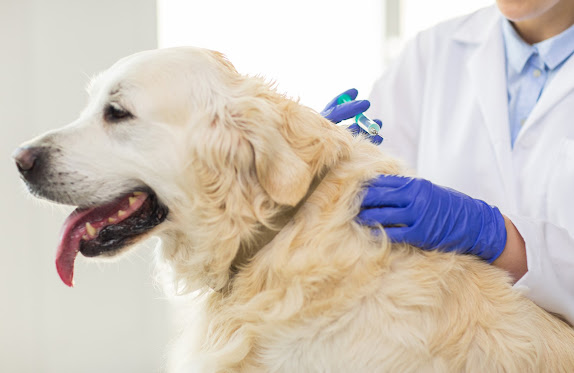21 April 2022

Tips for Vaccinating Dogs
Vaccination helps avert many dog illnesses. You can avoid costly treatments for preventable diseases by ensuring you follow vaccination regulations and your vet’s recommendations. Vaccinations also help prevent illnesses passed between pets and animals to human beings. Read on to learn a few tips that can help you protect your dogs, yourself and other animals through vaccination.
Adopted Pest
The easiest method to get a pet is to adopt one. If your friend or neighbour has a litter that needs a new home, you could consider adopting a puppy. However, adopting from websites and pet shelters can be tricky since you do not know whether the pet has gotten all of its vaccinations. Therefore, how do you proceed?
Most shelter dogs already have their vaccinations. Still, ensure you obtain all vaccination certificates and health records. Consult your veterinarian when you are uncertain about the accuracy or relevance of your area’s health records, especially when you adopt a dog overseas.
Periodic Vaccination
You must also vaccinate your dog periodically, just like other animals. In Australia, dog vaccines are divided into core and non-core vaccinations. Core vaccinations are mandatory. They include canine distemper virus, canine parvovirus and canine adenovirus vaccines.
Non-core vaccinations are required if your animal lives in a particular area or a specified environment. They include parainfluenza virus and leptospira interrogans vaccines. Your vet will examine the age of your pet and its environment to determine the vaccinations it needs.
Another essential step you must take is to vaccinate your dog against diseases when there is an outbreak. For example, ensure you get the canine influenza vaccine when there is an outbreak of the flu virus in your area.
Travelling
If you want to fly with dogs, you must have them vaccinated by the vet. It could be the primary vaccine or a vaccine recall. For example, check the validity of your pet’s rabies vaccination to know if your dog needs a booster shot before travelling.
Examine the vaccination regulations of your travel destination. If you take a trip by plane, ensure that you know the immigration laws regarding pets and vaccination. Some jurisdictions might request vaccines that your pet does not have. Speak to your vet to ensure that your pet has the required vaccines and documentation.
Pregnant Dogs
Another issue that concerns people is whether they can vaccinate their pregnant dogs. Your vet is the best source of information on this issue. The vet examines the dog’s condition and recommends whether the pet can have inactive vaccines that do not trigger a strong immune response.
Vets can also tell you if the vaccine can affect the puppies in utero. This consultation ensures the best health outcomes for your pet.
A late vaccination or, failure to vaccinate your pet, risks the well-being of the pet and the health of your family members. At Arundel Veterinary Surgery, we pride ourselves on our experience and expertise when it comes to dog vaccinations. Contact our team when you need to vaccinate your dog after adoption, for a periodic vaccine, when travelling and when the dog is pregnant.